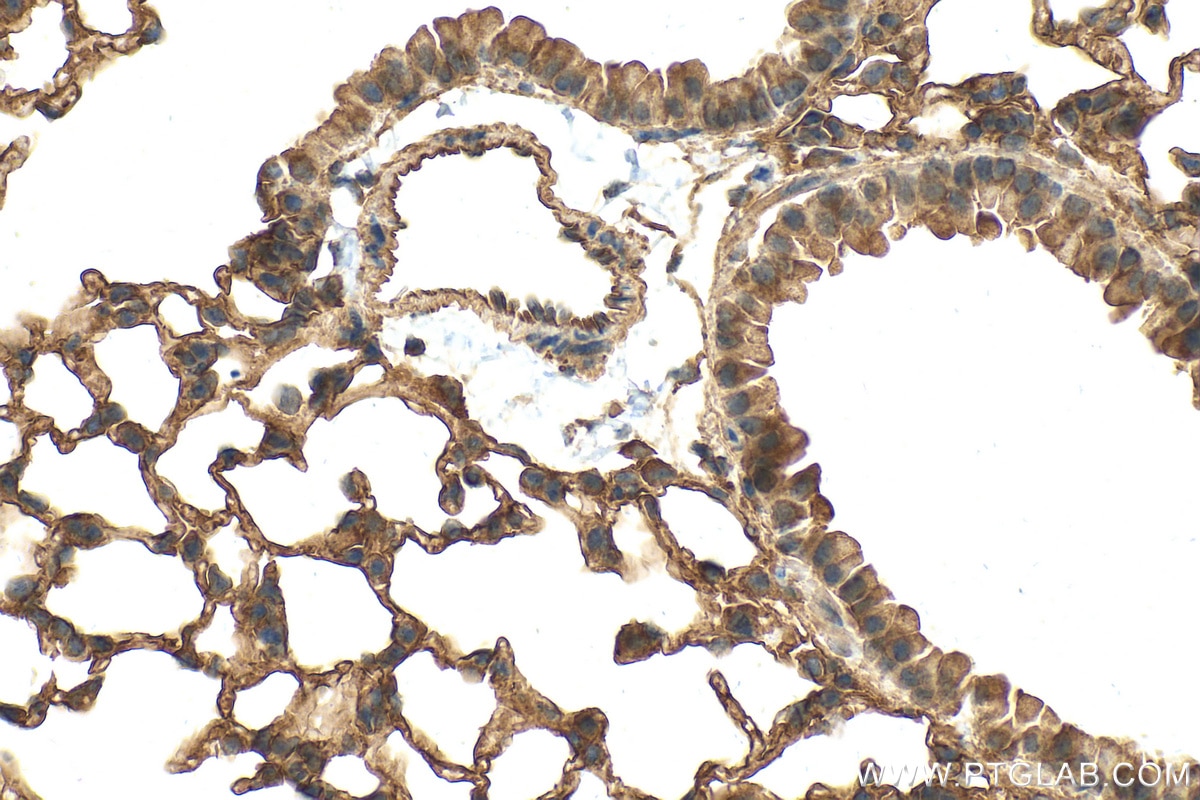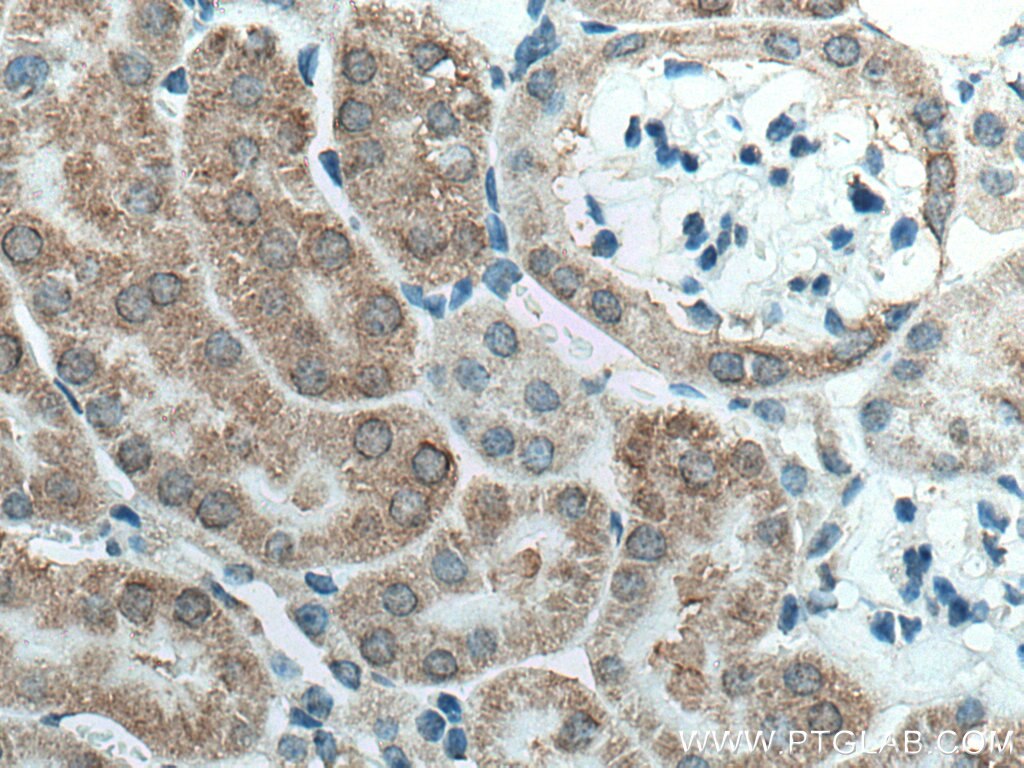GPR4 Polyclonal antibody
GPR4 Polyclonal Antibody for IHC, ELISA
Host / Isotype
Rabbit / IgG
Reactivity
Human, mouse
Applications
IHC, ELISA
Conjugate
Unconjugated
Cat no : 28232-1-AP
Synonyms
Validation Data Gallery
Tested Applications
| Positive IHC detected in | mouse lung tissue, mouse kidney tissue Note: suggested antigen retrieval with TE buffer pH 9.0; (*) Alternatively, antigen retrieval may be performed with citrate buffer pH 6.0 |
Recommended dilution
| Application | Dilution |
|---|---|
| Immunohistochemistry (IHC) | IHC : 1:50-1:500 |
| It is recommended that this reagent should be titrated in each testing system to obtain optimal results. | |
| Sample-dependent, Check data in validation data gallery. | |
Product Information
28232-1-AP targets GPR4 in IHC, ELISA applications and shows reactivity with Human, mouse samples.
| Tested Reactivity | Human, mouse |
| Host / Isotype | Rabbit / IgG |
| Class | Polyclonal |
| Type | Antibody |
| Immunogen | GPR4 fusion protein Ag28273 |
| Full Name | G protein-coupled receptor 4 |
| Calculated Molecular Weight | 362 aa, 41 kDa |
| GenBank Accession Number | BC067535 |
| Gene Symbol | GPR4 |
| Gene ID (NCBI) | 2828 |
| Conjugate | Unconjugated |
| Form | Liquid |
| Purification Method | Antigen affinity purification |
| Storage Buffer | PBS with 0.02% sodium azide and 50% glycerol pH 7.3. |
| Storage Conditions | Store at -20°C. Stable for one year after shipment. Aliquoting is unnecessary for -20oC storage. 20ul sizes contain 0.1% BSA. |
Background Information
GPR4 (G-protein-coupled receptor 4) is a proton-sensing G-protein-coupled receptor (GPCR) that contributes to neovascularization in acidic microenvironments (PMID: 33632325). GPR4 is highly expressed in vascular endothelial cells (ECs) and blood vessel-rich tissues such as the lung, kidney, heart, and liver. Moreover, GPR4 has been shown to mediate EC inflammatory responses to acidosis and is central for leukocyte-endothelium interaction (PMID: 27940273).
Protocols
| Product Specific Protocols | |
|---|---|
| IHC protocol for GPR4 antibody 28232-1-AP | Download protocol |
| Standard Protocols | |
|---|---|
| Click here to view our Standard Protocols |



